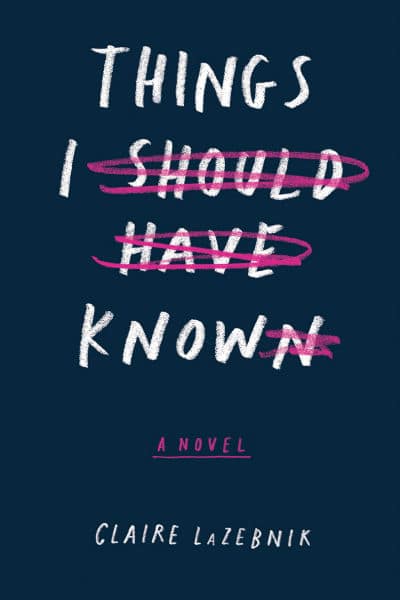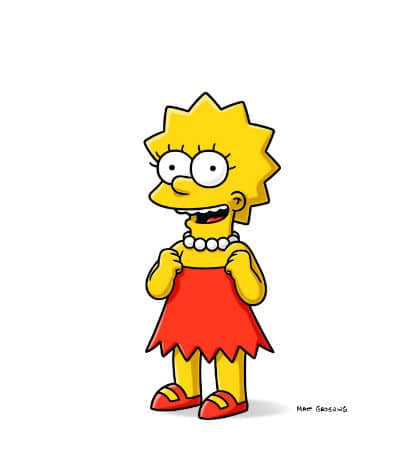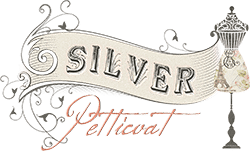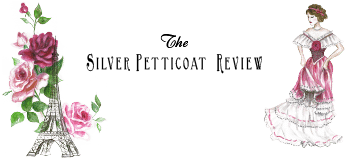
Interview With Author Claire LaZebnik
Claire LaZebnik is the talented author of popular books like Epic Fail (a Pride and Prejudice retelling), Same as it Never Was, and Overcoming Autism. Now she has a new book soon to hit the shelves on March 28. The book, Things I Should Have Known, a YA contemporary story about sisters, autism, and love, releases in time for Autism Awareness Month this April and should be on everyone’s reading radar.
LaZebnik took the time to talk to the Silver Petticoat Review about her new book, Jane Austen, her writing process, and what fictional characters she relates to!
Amber: Congratulations on your latest novel, Things I Should Have Known! Can you talk briefly about your background and what inspired you to become a writer?
Claire LaZebnik: I read all the time as a kid—I mean, ALL the time. I loved books so much. They sped me across the seas to other worlds, where I could imagine myself a brave and beautiful heroine meeting a lover on the moors–instead of a suburban kid who scarfed down half an Entenmann’s Raspberry Danish Twist every day.
Since reading books was so pleasurable, I figured writing them would be even better—I could tell stories for a living!—so I dreamt of becoming a modern Austen or Bronte. I was an English major at college, which meant I graduated with no discernible skills. So . . . becoming a writer was pretty much the only option. I did some magazine work and had an office job or two, but from graduation on, I was always working on a novel. It took me quite a while to actually sell one—something like ten years. But I never stopped writing. That’s what separates published authors from non-published authors, I think—that ability to just keep trying even after your work has been rejected a lot.
Things I Should Have Known is my twelfth published book. I can’t claim to be a modern Austen or Bronte, but I’m a decent and very lucky me.
What can you tell the readers about your new book?
A couple of years ago, I had a really serious depression. It was due to a bunch of different factors, but when I went into therapy I mentioned how I felt frustrated with my career. And the therapist’s advice—the best advice I’ve ever gotten (next to “make sure you get some exercise every day”)–was, “Write something you feel really passionate about. Don’t write anything you’re not a hundred percent proud of. Write for yourself.” And that’s when I sat down and started Things I Should Have Known, which is a YA novel about two loyal and loving sisters, one of whom has autism. It was something I just wanted to write, and I am, actually, very proud of it. I hope people discover and love it, but even if they don’t, I’m glad it’s in the world.
You previously co-wrote a couple of non-fiction books with Lynn Koegel about Autism. What is it about Autism that you wish more people would know? And why is storytelling a wonderful medium to spread a greater understanding?
I wish our society were more accepting of all kinds of differences. There is absolutely no question that diversity enriches a community: the more viewpoints and styles and ways of thinking in a group, the more inventive and far-reaching it will become. But people are born with a natural aversion to differences—I think it probably has to do with our more primitive ancestors needing to stay safely within their own villages or something. Anyway, it’s a shame, because it leads to all sorts of narrow-mindedness. Many people with autism have ways of talking or thinking that are unique, and it’s crucial that we stop trying to impose conventional expectations on them.
People relax when they’re reading or watching something that’s entertaining. If you just say to someone, “You should be more open-minded,” that person will get defensive. But if you simply expose people to a fun bit of fiction about someone who’s different from them, they’ll just enjoy watching or reading it–and that’s what truly changes minds. And worlds.
 What was the inspiration behind Things I Should Have Known? Is it a story you’ve had brewing for a while? Or something that came to you more recently?
What was the inspiration behind Things I Should Have Known? Is it a story you’ve had brewing for a while? Or something that came to you more recently?
I read The Rosie Project a few years ago, and really loved it. It’s an adult book, narrated by a man with Asperger’s Syndrome, who’s looking for love. I think that planted a seed and I started thinking about teenagers with autism and how they often struggle to find companionship. But I was also interested in the family dynamic–when you’re still living at home, family is so important. Then I got the idea for the novel’s big twist—which I won’t reveal here—and suddenly everything fell into place beautifully. And of course, I have a long personal and literary relationship with autism—I’ve co-written two books on the subject.
What made you choose the YA genre to tell this story? And what message would you like readers to take from it?
I’ve been writing YA for a while now—this is my fifth YA novel–and I really enjoy it. A lot of adult novels have gotten sort of precious lately—too many of them feel less about the story than about the elegant literary tricks the author wants to show off. I felt this should be a straightforward story with a lot of emotional depth, romance, and humor. That, plus the fact I wanted the main characters to be sisters living at home together, meant YA just made sense. And I love the enthusiasm of YA readers. I would miss it if I started writing for adults again.
I hope my readers will come away from this book aware that everyone with autism is different—that they shouldn’t leap to any assumptions about people on the spectrum. Open your mind and your heart to people who are different from you, and I promise that it will enrich your life.
Can you share some insight behind the characters Chloe, Ivy, Ethan, and David?
The funny thing about Chloe (my narrator) is that she’s blond and tall and popular—and these are three attributes I’ve never given a heroine before! I tend to root for the underdog, so my main character is usually small and dark-haired and a little bit of an outsider (not unlike me when I was in school). But I wanted to really underscore the differences between Chloe and Ivy, who’s on the autistic spectrum.
I wanted Chloe to seem like she has it all—but then you realize she really doesn’t. Things are sad at home, and the main reason she’s popular out in the world is because she’s had to deal with so much in her personal life that she stays above any pettiness at school. She and Ivy are very close, but Ivy doesn’t always show her love in a typical way, which can be frustrating for Chloe. Ivy is also deeply anxious, so Chloe has to be careful not to say anything that will increase her anxiety, and she’s very dependent on Chloe at this point—but Chloe wants to head off to college soon, so that’s concerning.
David couldn’t care less about being popular: in fact, he relishes being the outsider. He’s deeply attached to his brother, Ethan, who, like Ivy, has autism. Ethan has an incredibly sweet heart but some unusual behaviors, so he’s often stared at in public. I think David is—consciously or not—rejecting a world that won’t accept his brother for who he is. Basically, he’s thinking, if Ethan’s going to be an outcast, I’ll be one too. He needs to learn—and starts to–that he can support and love his brother without being angry at the entire world all the time.
I love that sisterhood is such an important aspect of your book. What do you love about the relationship between Chloe and Ivy?
Oh, I love so much about it! Ivy depends on Chloe for her entire social life, so Chloe feels guilty whenever she goes out without her—but Chloe knows how important she is to her sister, and she honors that and makes Ivy’s happiness the biggest goal in her life. And even though Ivy may not always be completely tuned in to what Chloe’s thinking or feeling, she does sense when Chloe’s sad, and will do anything for her at those moments—talk, if she wants to talk, sit silently with her if she doesn’t. She cares deeply about Chloe, even if she can’t always express it. This is a really important side of the story to me.
At one point, Chloe sees an old photo of herself and Ivy when they were little, and her mother tells her that Ivy is carefully holding her hand and walking her into a playground—taking good care of her little sister. And Chloe is so used to looking out for Ivy that this kind of blows her away—it puts them on a more equal footing. She realizes Ivy is as committed to taking care of her as she is to taking care of Ivy.
I read that you’re a huge Austen fan. I am as well. Was Austen at all an influence on Things I Should Have Known? Perhaps in the interactions between Chloe and David and the “things Chloe should have known” about him?
You know what’s really funny? I wrote four modernizations of Austen novels, and this was my attempt to break out of that mold—and then one reviewer said that Chloe’s mistaken assumptions about her sister were Emma Woodhouse-like. I was slightly indignant because, for once, I wasn’t trying to channel Austen. But the truth is, it’s hard to write any kind of romantic relationship without giving a nod to Austen—she gets so much so right about men and women that bits of her sneak into everything.
Are there any writers who came before that influence your own writing style?
When I was in high school, one of my teachers said to me, “Did you know that you start writing like whoever we’re reading? It’s sort of freaky.” Apparently, I was very suggestible that way. If we were reading Henry James, I wrote long, flowery sentences. If we were reading Hemingway, I wrote in short, brusque sentences. I decided to put this weird habit to use, and started to do creative writing projects where I’d do a parody of a DH Lawrence story or a Nabokov one or a Woolf one—stuff like that. I even won a high school writing award for a few of those stories. So I’ve actually had to work hard NOT to imitate other authors, consciously or unconsciously.
But these days, I just strive to write simply and clearly. I want what I’m saying to be more important than how I’m saying it.
Of course, every single author I read when I was a kid influenced me. It’s all in there. You don’t forget the books that made a big impression on you or the phrases that got under your skin and stayed there.
What is your writing process like? Do you like to plan and outline everything first? Or do you like to just write it out as you go and rewrite later?
I am so all over the place. I wish I were more disciplined and organized. I usually have a very very vague and broad outline . . . and within a day or two, I’m already deviating from it. As the project continues, I devolve into just dashing off notes as I go along, hoping I won’t forget the ideas that come along the way, usually in the middle of the night.
An author friend introduced me to this writing software called Scrivener. It organizes everything by chapter and helps you keep track of characters and storylines in all these different ways. I tried it, thinking, “This will solve all my organizational problems!” After a few months, I went running back to the simplicity of MS-Word. I just have to accept that I’m not a Person Who Organizes. I am a Person Who Makes a Mess and Then Tries Desperately to Fix It.
I’m very much a rewriter; the only way I can get through that tough first draft is by telling myself it can totally suck and I’ll rewrite it all later. Which I essentially do. So in that sense, you could say that my first draft is really just a very detailed outline.
Do you have any upcoming projects you can talk about?
I’m working on another YA novel, one with a bigger cast of main characters, each of whom gets to tell the story for a while. But I’m not going to say more than that right now—it’s still unfinished and I get a little superstitious at this stage of things.
I’m also editing a book of essays about food by women—that will be out this spring. You can read about it HERE.
What’s the best way for readers to follow you and your projects?
Either Facebook or Twitter! I have a website too: www.clairelazebnik.com. Oh, and an Instagram account—clairelazebnik. Almost forgot that one. I’m on Snapchat too, but I mostly just use it with my kids. 🙂
Just a fun question but if you could compare yourself to three fictional characters (anyone from books, film, or TV) who would they be and why?

The most obvious answer is Linda Belcher from Bob’s Burgers. I AM Linda. Sometimes when the kids and I are watching the show, she says something that’s just so perfectly ME (like “Mommy doesn’t get drunk; she just has fun”) and my kids and I fall apart laughing. The funny thing is that when I was younger, I was a lot like Tina, glasses and all. So I guess that means Tinas grow into Lindas?
I should also give a shout-out to Lisa Simpson (and not just because my husband writes for that show). Like Lisa, I sometimes feel like the things that matter to me don’t matter to most people and vice versa. Which can be pretty alienating.
And finally, I totally relate to Holly Hunter’s Jane in Broadcast News—she’s just so awful socially . . . Yeah, that’s me. If there’s a wrong thing to say, I’ll say it.
Well, that wraps up my questions! Thank you for taking the time to talk to us. Is there anything else you would like to add about Things I Should Have Known or any of your other books?
Just that this one comes straight from the heart. I hope people respond to that.
ARE YOU A ROMANCE FAN? FOLLOW THE SILVER PETTICOAT REVIEW:
 Our romance-themed entertainment site is on a mission to help you find the best period dramas, romance movies, TV shows, and books. Other topics include Jane Austen, Classic Hollywood, TV Couples, Fairy Tales, Romantic Living, Romanticism, and more. We’re damsels not in distress fighting for the all-new optimistic Romantic Revolution. Join us and subscribe. For more information, see our About, Old-Fashioned Romance 101, Modern Romanticism 101, and Romantic Living 101.
Our romance-themed entertainment site is on a mission to help you find the best period dramas, romance movies, TV shows, and books. Other topics include Jane Austen, Classic Hollywood, TV Couples, Fairy Tales, Romantic Living, Romanticism, and more. We’re damsels not in distress fighting for the all-new optimistic Romantic Revolution. Join us and subscribe. For more information, see our About, Old-Fashioned Romance 101, Modern Romanticism 101, and Romantic Living 101.
